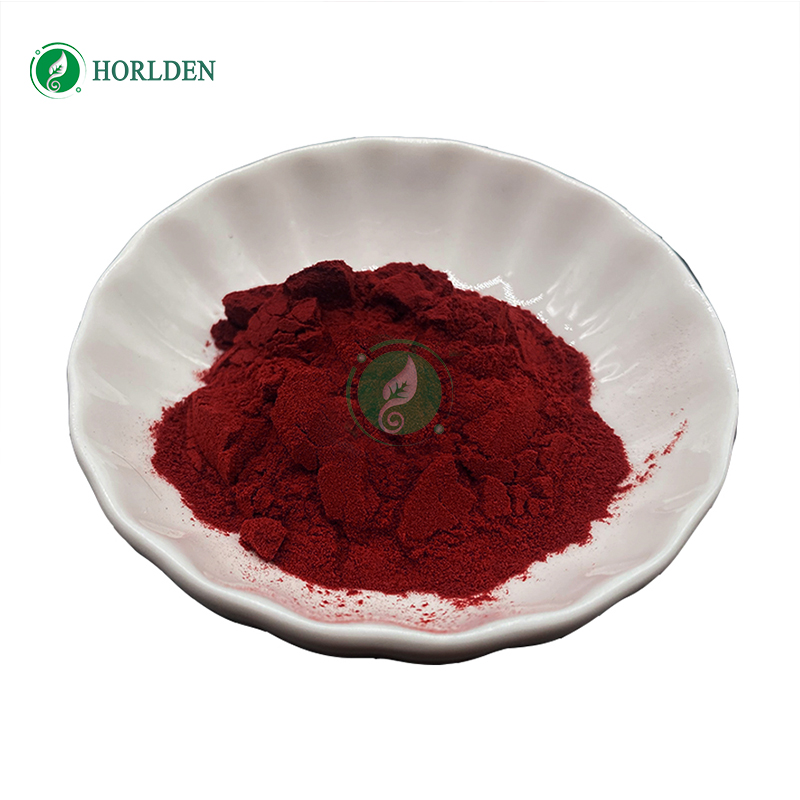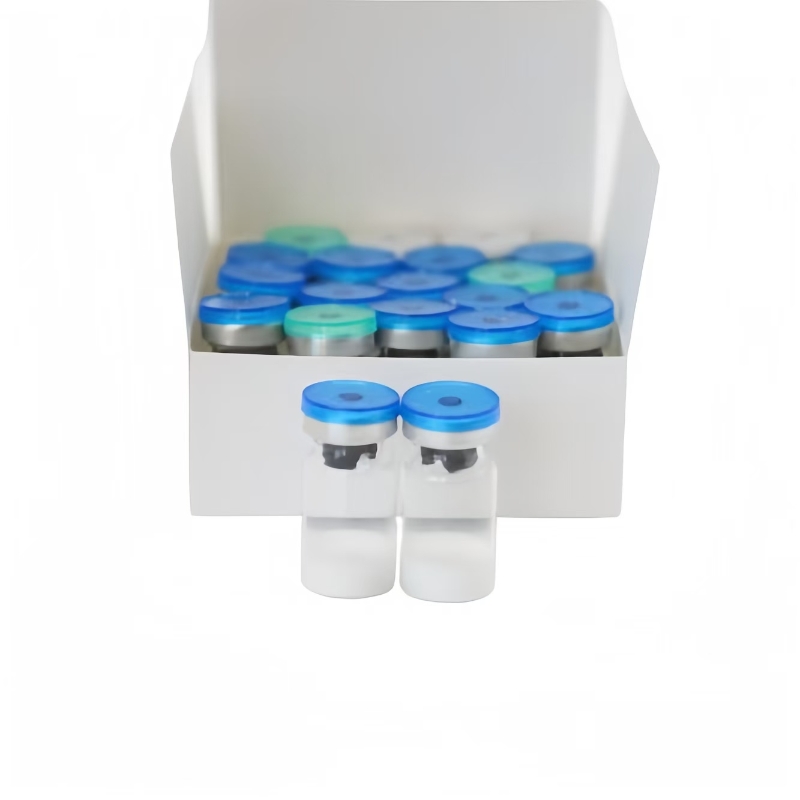Competition status of non-small cell lung cancer in China: an unexpected "three kill"
-
Last Update: 2018-02-23
-
Source: Internet
-
Author: User
Search more information of high quality chemicals, good prices and reliable suppliers, visit
www.echemi.com
For the domestic non-small cell lung cancer market, the time has come for the fierce competition among the three countries For Huadan, the next generation of AstraZeneca in China, the smooth access of Teresa is just the prelude Teresa has set a new record in the speed of new drug listing in China Teresa has set a new record in China for the speed of new drug marketing For the next generation of AstraZeneca China, Huadan, the smooth access of Teresa is just the prelude For the domestic non-small cell lung cancer market, the time has come for the fierce competition among the three countries On March 24, AstraZeneca announced that the State Food and Drug Administration (CFDA) approved the listing of its third generation lung cancer targeted treatment drug Teresa (oxitinib mesylate tablets) in China This is not only the world's first listed third generation oral, irreversible and selective EGFR mutation inhibitor, but also the first approved local advanced or metastatic non-small cell lung cancer drug for EGFRT790M mutation positive in China Moreover, it has set a record of the speed of the listing of imported drugs in China after the implementation of chemical drug registration and classification in 2007 At the end of 2015, CFDA issued the opinions on solving the backlog of drug registration applications and implementing the priority review and approval (Draft for comments), opening up a green channel and accelerating the review of drugs in clinical urgent need For Teresa, it took only seven months from entering the green channel to being officially approved, while it was only 16 months from being approved in the United States 1 unexpectedly, at the end of 2015, CFDA issued a drug priority review and approval policy, the original intention of which was to solve the problem of queuing up of drug registration applications in the backlog of drug registration applications, which were urgently needed in clinic and in short market The speed of drug approval is of great importance to pharmaceutical companies For enterprises, the priority review system reduces the waiting time of new drugs, improves the efficiency of new drug research and development, and speeds up the listing of new drugs; for the industry, the priority review system inclines the limited review resources to innovation and clinical urgently needed varieties, and the situation that the industry varieties are not connected will be alleviated gradually In the ministerial channel during this year's two sessions, Bi Jingquan, director of CFDA, said in response to the problem that "some foreign drugs can't be bought at home", this phenomenon does exist, but there are many reasons, such as system design, the lack of implementation of intellectual property protection policies, the untimely adjustment of medical insurance catalogue and the efficiency of drug review For a long time, due to the lengthy approval process, an innovative drug in China lags behind the rest of the world by at least six to eight years or more The establishment of the priority review system not only allows a batch of innovative drugs and clinically urgent drugs to be put on the market quickly, but also allows a batch of "global new" drugs to enter the clinical market Up to now, the drug review center (CDE) of the State Food and drug administration has publicized 25 batches of drugs to be included in the priority review and approval, and 271 drugs have finally entered the priority review green channel "In fact, when we received the approval notice from CFDA, the product training of internal team for Teresa was not completed." At the launch conference of Teresa China, Liang Yi, vice president of AstraZeneca China and head of cancer business department, admitted that the speed of Teresa's approval was beyond their expectation Teresa's approval for listing in China is only about two and a half years from its official submission of registration application, less than two months from its official submission of listing application, and only about six months later than the approval of FDA in November 2015 Liang Yi revealed that the listing schedule of Teresa China was even posted on the table of Global CEO, which shows that AstraZeneca attaches great importance to the listing of Teresa China As the first third-generation oral targeting drug in the world, Teresa is also the first approved tumor drug for locally advanced or metastatic non-small cell lung cancer with positive T790M mutation in China, and there is no similar product in China at present The first phase III survival data showed that tiresar, as a second-line therapy, can significantly prolong the progression free survival period by 5.7 months compared with the standard chemotherapy with platinum drugs, which is the reason why it can enter the fast review channel in the United States and China Huang Bin, vice president of AstraZeneca China and head of corporate affairs and market access, believes that through the approval of Teresa, we can see the efficient operation of the whole drug audit system, and there may be other varieties of rapid approval in the future But on the other hand, the limitation of objective conditions, such as lack of manpower, also determines that such efficient results are difficult to copy to all varieties According to data statistics, the market scale of small molecule targeted drugs used in lung cancer market in China was 3.23 billion yuan in 2015, with a compound growth rate of 22.6% from 2010 to 2015 At present, the three main products, exetane, gefitinib and erlotinib, are suitable for the treatment of locally advanced or metastatic non-small cell lung cancer that has received chemotherapy or is not suitable for chemotherapy The listing of Teresa gives AstraZeneca a step ahead of its competitors According to data statistics, the number of non-small cell lung cancer patients in China accounts for 80% - 85% of the total number of lung cancer cases About two-thirds of patients will develop drug resistance due to T790M mutation within one year after taking the drug, and Theresa is the only drug choice for T790M drug resistance at present As a local player in the non-small cell lung cancer market, Kemena of Beida Pharmaceutical Co., Ltd successfully shortlisted for the first batch of national drug price negotiation varieties, achieved a revenue of 1.035 billion yuan in 2016 by reducing 54%, with a year-on-year growth of 13.36%, and a year-on-year growth of 31.46% This product also accounted for 99.98% of the total revenue of Beida Pharmaceutical Co., Ltd After being included in the 2017 new medical insurance catalog, it will also be conducive to the market sales of Kemena in the future Roche, another multinational pharmaceutical company, has been shortlisted for the second round of national drug price negotiation this year, with a price reduction rate of more than 50%, despite losing the first batch of national drug price negotiation varieties In addition, in March 2017, Boehringer Ingelheim announced that afatinib, the world's first and only second-generation irreversible TKI (tyrosine kinase inhibitor) targeted drug, will officially enter the Chinese market Alfatinib has been approved in more than 70 countries for the treatment of EGFR mutation positive non-small cell lung cancer patients, and has become the first choice of EGFR targeted drugs in many countries Eliza has been the largest market share drug in EGFR-TKI since it was launched in China in 2005 According to the data of China Financial Research Report, the sales volume of gefitinib in China in 2015 was 1.243 billion yuan, accounting for 38.5% of China's EGFR-TKI market share However, with the strong involvement of local enterprises and other multinational pharmaceutical companies, it will be increasingly difficult for AstraZeneca to move forward in the domestic non-small cell lung cancer market only by relying on IRESSA The approval of Teresa has given AstraZeneca an important weapon in the increasingly fierce competition In terms of competitiveness, it can not only defend the current market share, but also have enough strength to attack Beida and Roche Another concern is price At present, Teresa has not entered the hospital, so the main way of purchase is from the pharmacy According to e drug managers, Teresa's price is about 50000 yuan per month According to the Teresa charity assistance project, urban and rural patients with pre disease minimum insurance will receive free drug assistance until the disease progresses Non minimum living insurance patients can apply after using tiresar for 4 months, at the first stage after approval, they can get assistance drugs for up to 8 months, and after that, they can continue to apply for assistance until the disease progresses after continuous use of tiresar for 3 months In addition to these listed products, in recent years, with the increasing incidence rate of lung cancer, the demand for anti-cancer drugs in the field of domestic enterprises is increasing, and the investment in the field of anti-tumor drugs is gradually increasing At present, at least 25 companies in China are applying for the imitation of gefitinib, and at least 28 companies are applying for the imitation of erlotinib, among which there are some powerful enterprises such as Hengrui pharmaceutical, Luoxin pharmaceutical, Xiansheng pharmaceutical, etc At the end of 2016, Yirui, the first generic drug of gefitinib developed by Qilu Pharmaceutical Co., Ltd., was approved by CFDA to be the first pilot product of drug listing license holder system in China and officially launched in February 2017 The most interesting thing is that the listing of IRICO has directly reduced the price of the original research product Iressa from 5000 yuan per box to 2000 yuan.
This article is an English version of an article which is originally in the Chinese language on echemi.com and is provided for information purposes only.
This website makes no representation or warranty of any kind, either expressed or implied, as to the accuracy, completeness ownership or reliability of
the article or any translations thereof. If you have any concerns or complaints relating to the article, please send an email, providing a detailed
description of the concern or complaint, to
service@echemi.com. A staff member will contact you within 5 working days. Once verified, infringing content
will be removed immediately.







